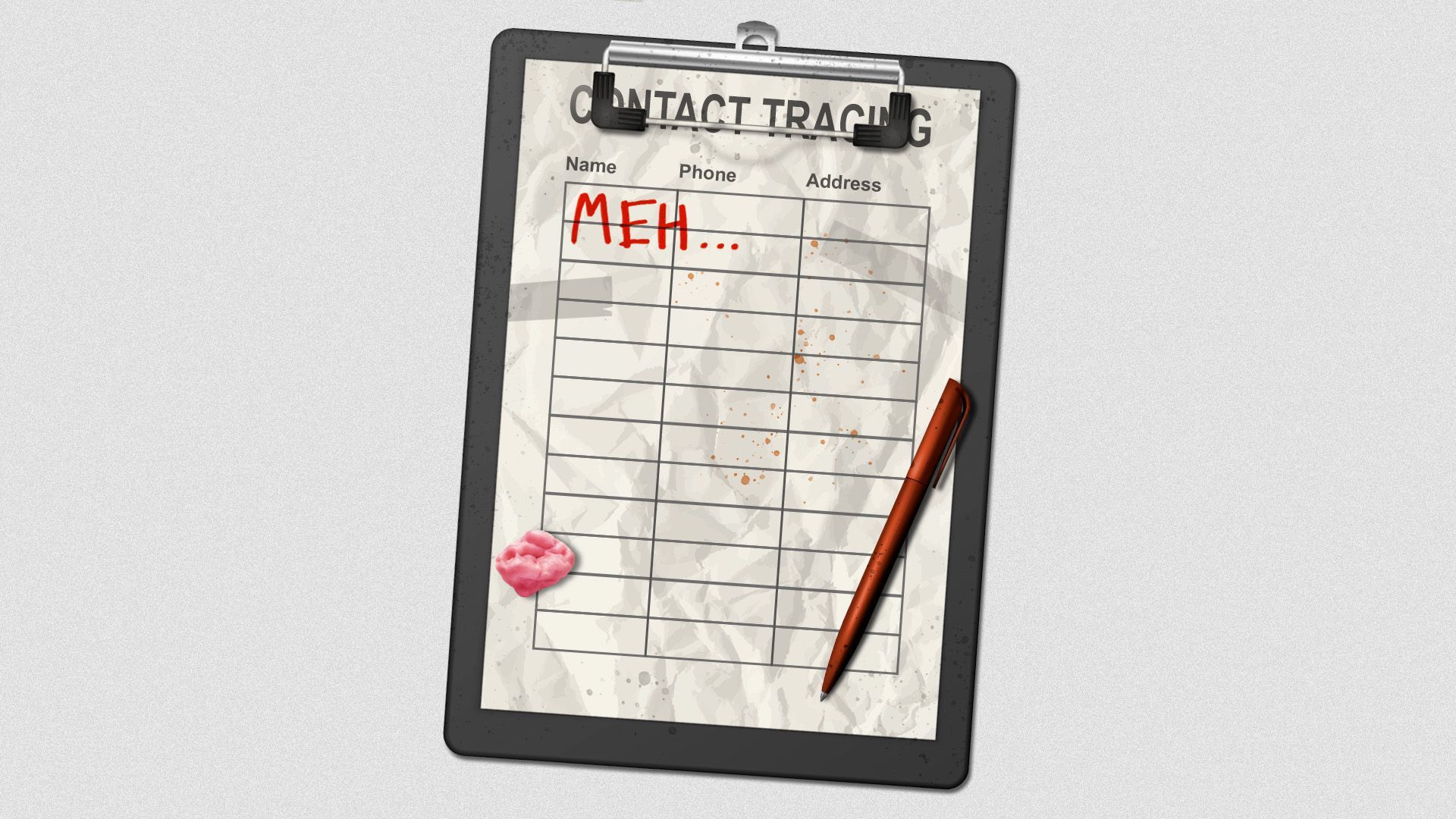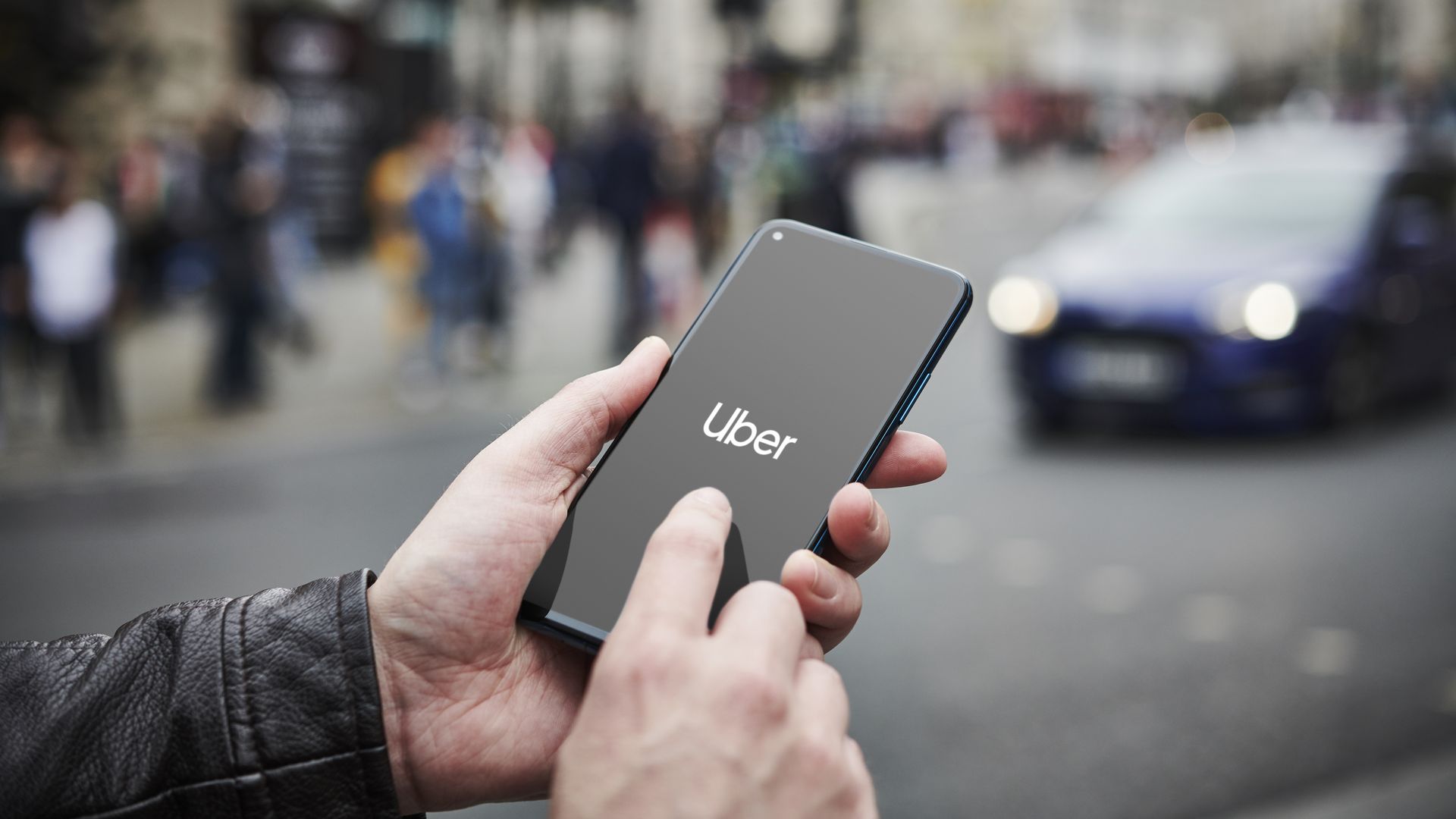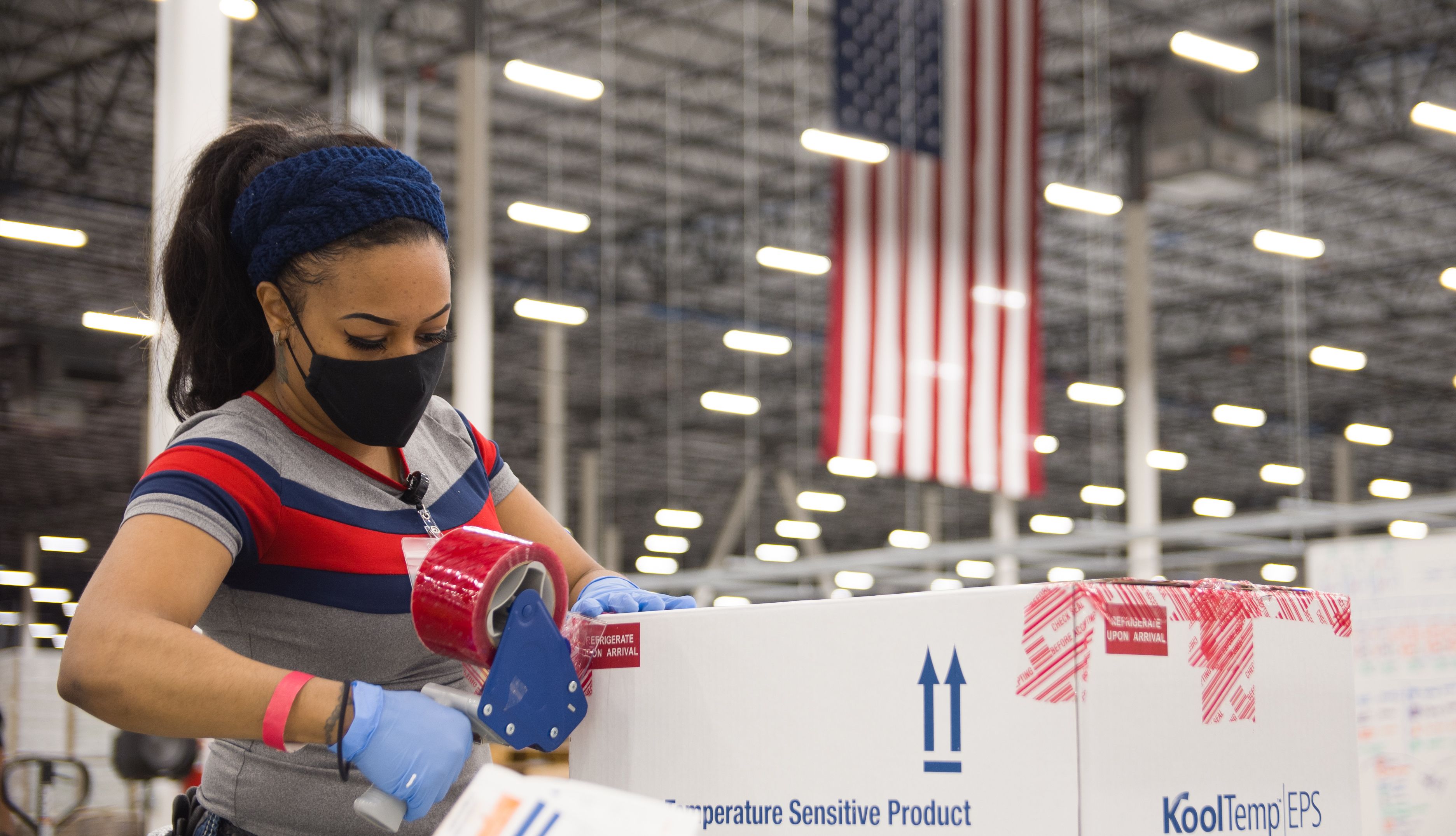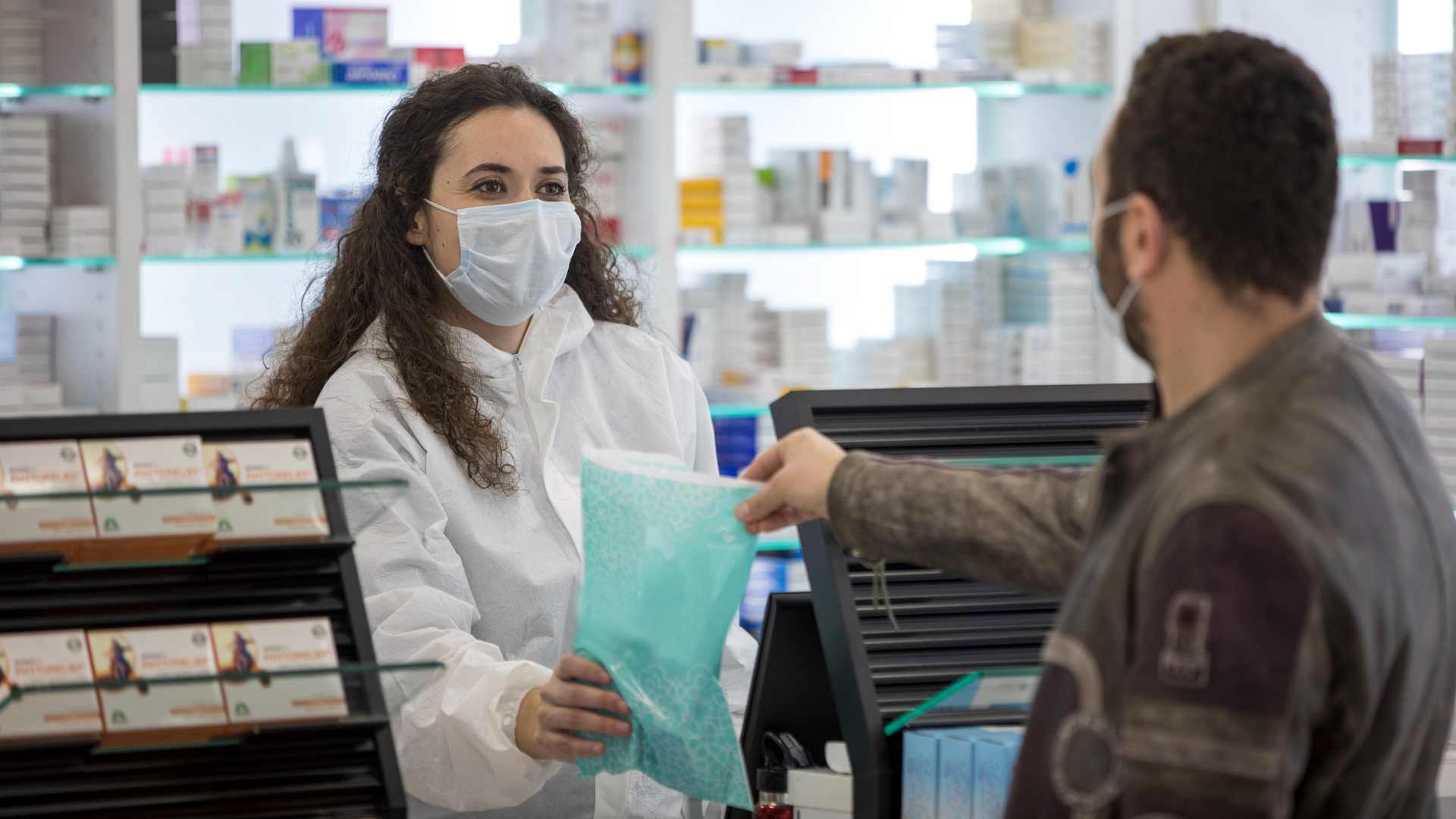| |
| |
| |
| Presented By the Healthcare Distribution Alliance |
| |
| Axios Vitals |
| By Tina Reed ·Jan 28, 2022 |
| 😎 We've (almost) made it to the weekend and the end of January, Vitals readers. Way to go. Today's newsletter is 639 words or a 2-minute read. |
| |
| |
| 1 big thing: Contact tracing is no longer a thing |
 |
|
| Illustration: Sarah Grillo/Axios |
| |
| States across the country are scaling back their contact tracing efforts, often focusing on vulnerable communities and relying more on Americans to alert close contacts themselves after testing positive for COVID, Axios' Caitlin Owens writes. Why it matters: As vaccines have become available, the virus has become more infectious and life has slowly headed more toward normal, health officials have come to view contact tracing as a relatively inefficient use of resources. State of play: The Virginia Department of Health announced this week that it will no longer attempt to trace the contacts of every new COVID case, and will instead focus on high-risk settings. - The Omicron variant drove the change. "We can't trace and isolate that many cases, we don't have enough staff for it. It's just too many people for this Omicron surge," Mount Rogers Health District's Breanne Forbes Hubbard told WCYB.
The big picture: Well over a dozen states — including Nebraska, Wyoming and Massachusetts — have already taken steps to dial back contact tracing and have asked the public to do more of it themselves, according to the National Academy for State Health Policy, which is tracking the trend. - "Contact tracing is a tool that we know works for communicable diseases, but, for example with Omicron — which is incredibly contagious — it is hard to keep up with it in a way that is helpful," said NASHP's Elinor Higgins.
Read the rest. |
    |
| |
| |
| 2. Americans worry about economy, local hospitals |
 Data: KFF; Chart: Thomas Oide/Axios The U.S. economy and local hospitals worry Americans more during the Omicron outbreak than previous variant outbreak, according to the Kaiser Family Foundation's January Vaccine Monitor report. - On the flip side, they are less worried about Omicron's impact on themselves or their way of life.
The intrigue: Republicans, Democrats and independents found an area of agreement, according to the monitor. About three-fourths of each believe it's inevitable that most people in the U.S. will eventually get COVID. |
    |
| |
| |
| 3. Uber's next big health play |
 |
|
| Photo: Olly Curtis/Future via Getty Images |
| |
| Uber made its name shuttling people from bars and restaurants, but the company sees a future in connecting parts of the health care ecosystem, Axios' Erin Brodwin writes. Driving the news: Uber Health recently picked up Michael Cantor as its first chief medical officer, underscoring the company's commitment to investing in the health care sector. - Industry observers tell Axios it could signal an interest in expanding beyond simple ride-hailing logistics to supporting clinical trials or facilitating hybrid care.
What he's saying: "If we had access to services to coordinate more effectively, this is what we'd want: A one-stop shop to get transit, nutrition, prescriptions, all of those things," Cantor said. This story first appeared in the Axios Pro Health Tech Deals newsletter. Subscribe at AxiosPro.com. |
    |
| |
| |
| A message from the Healthcare Distribution Alliance |
| Why healthcare distributors are key partners in fighting COVID-19 |
| |
 |
| |
| Distributors work with federal, state and local governments to deliver vaccines, treatments and supplies where they are needed. What this means: While navigating the demands of COVID-19, we ensure healthcare products get to providers and patients. Health Delivered. |
| |
| |
| 4. Instagram, TikTok cut mental health startup ads |
| Ads from the mental health startup Cerebral were pulled from Instagram and TikTok after NBC News approached both social media companies about "misleading health claims" linking ADHD with obesity, the news organization reports. - The ads from the company — which boasts Simone Biles as its chief impact officer — came with the message: "Those who live by impulse, eat by impulse" and claimed treatment could help patients stop overeating.
What they're saying: David Mou, Cerebral's chief medical officer, told NBC an outside agency came up with the company's advertisements and he and his team of clinicians didn't approve the ones in question. - "We immediately pulled it and have already come up with a process where I and my clinical team will be reviewing everything that comes through, so that nothing like this happens again," he said, per NBC.
The big picture: Cerebral, which has a $4.8 billion valuation, came under fire last month after a report in Forbes that the company "reneged on salaries and health insurance for hundreds of therapists." |
    |
| |
| |
| 5. Dog of the week |
 |
|
| Winston. Photo: Erica Carbajal |
| |
| Meet Winston, who just turned 1 year old in August. - Winston, who lives in Chicago with his mom Erica Carbajal, looks quite dapper with his bowtie, don't you think?
|
    |
| |
| |
| A message from the Healthcare Distribution Alliance |
| Delivering more than 10M medicines, vaccines and supplies daily |
| |
 |
| |
| Distributors serve as a vital link between manufacturers and providers — moving billions of medicines, vaccines and supplies every year. We provide the logistics expertise, inventory range and technology required to keep pharmacy and hospital shelves stocked across America. Learn more. |
| |
| January is Cervical Cancer Awareness Month. Here are some fast facts about HPV and cervical cancer. |
 | Bring the strength of Smart Brevity® to your team — more effective communications, powered by Axios HQ. | | |
Post a Comment
0Comments